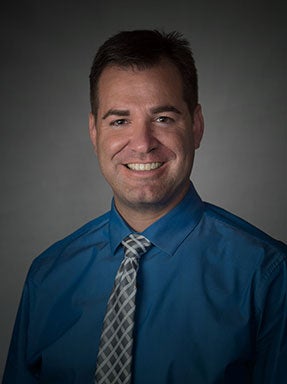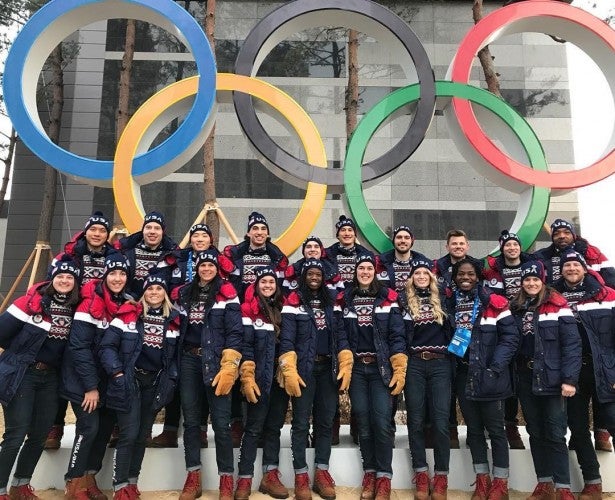Preparing Athletes to Handle the Psychological Side of Sports
DU master’s student serves as strength and conditioning coach for U.S. speed skating team
“It was almost surreal. That’s the moment you realize this is it, I’m here.”
That moment for Tyler Dabrowski was when he walked out with Team USA for the opening ceremony of the 2018 winter Olympic Games with more than 28 million American households watching on TV.
It was Dabrowski’s first Olympic experience, not as an athlete, but as the head strength and conditioning coach for America’s speed skating team.
“It was awesome,” Dabrowski says. “Seeing everyone come together for one sports event, where everyone has made the same sacrifices. Everyone has their differences, but everyone comes together for one event. Seeing that unfold was really humbling and a great experience.”
Dabrowski earned his undergraduate degree in exercise science from Keene State College in New Hampshire and has earned certifications in strength and conditioning. However, as he started working with athletes, he realized there was one aspect of their training he was unable to help with.
“I saw how complicated it can be to deal with an athlete’s emotions during training and competition. I feel like a lot of time that plays a bigger role than just the physicality and physiology,” Dabrowski says. “I felt there was more that I could learn by pursuing a master’s degree. I really got drawn to DU’s focus on the psychology, sociology and the culture aspect of sports.”
Dabrowski is now in his second year of DU’s sport coaching program through the Graduate School of Professional Psychology. Because he is based in Salt Lake City, Utah, with the U.S. speed skating team, he takes all of his classes online. Dabrowski says it’s all about finding a better way to motivate athletes and help them mentally during recovery.
“Seeing the things that happen to athletes right before and during the games with their emotions — being very high or very low — there’s a lot of things that I have learned in the program that I was able to refer to,” he says.
The 2018 games in PyeongChang provided an opportunity for Dabrowski to practice what he has learned. Now that he’s had time to reflect on his experience in South Korea, he’s realized how he can be better prepared in the future.
“I have realized how important it is to focus on the process and not necessarily the outcome of the circumstance,” Dabrowski says. “Helping athletes understand that as long as they do their best, they can hold their head up high after a performance and not reflecting on little things that may have gone wrong.”










